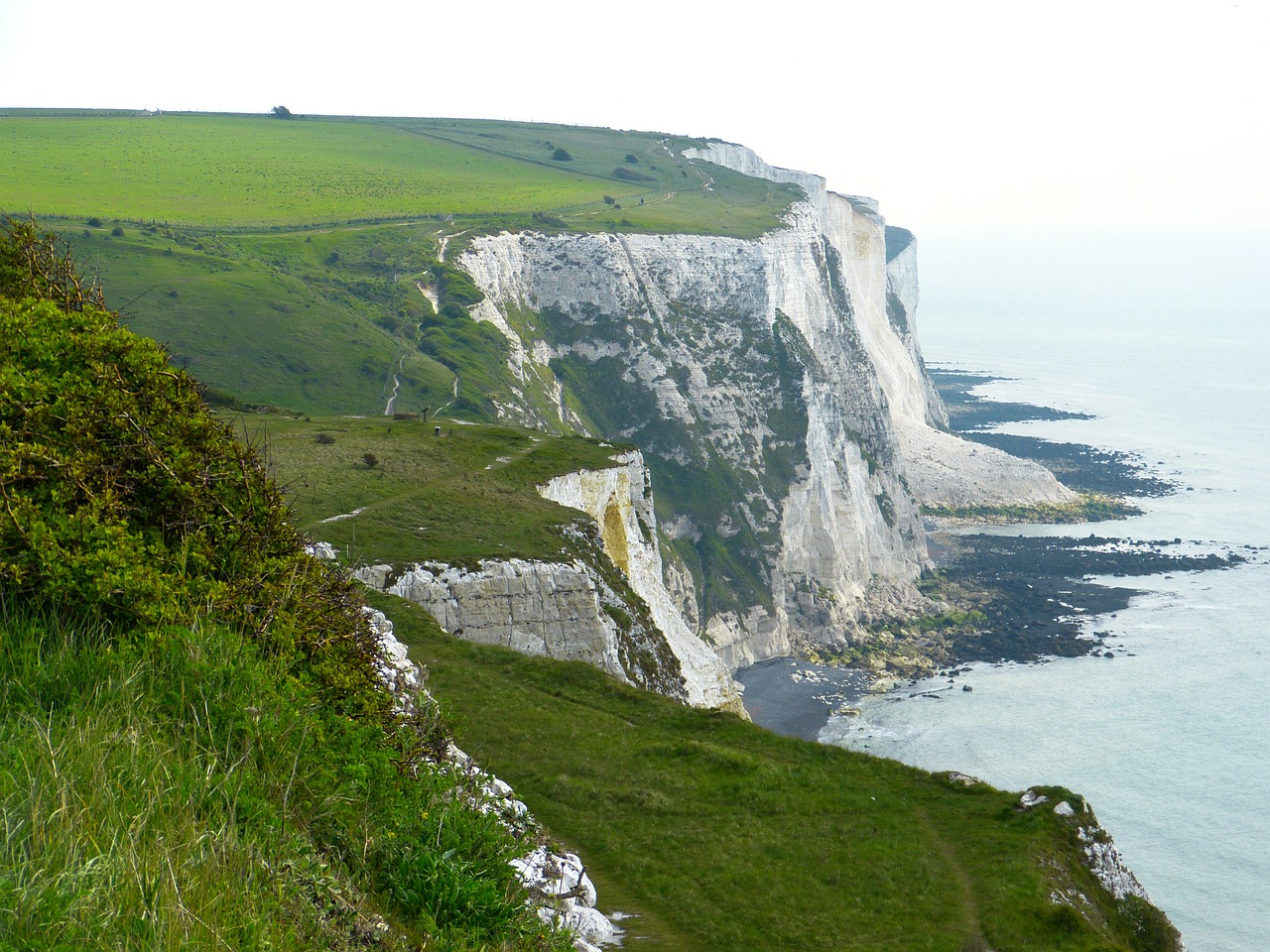After hours of shivering, the British Cabinet gave the go-ahead on Wednesday evening for Prime Minister Theresa May’s draft for an EU exit agreement. The „Brexit“ negotiations have come a long way. The next big hurdle is now the parliament. But the critics of Mays plans are still in attack position, also there was already a resignation in the Cabinet.
May had announced in a press conference on Wednesday after the five-hour Cabinet meeting the agreement. It was a joint decision to approve the agreement. It was difficult to adopt the bill, especially with regard to the controversial issue of Ireland, May said. „But I think it’s a decision that is deeply in the national interest.“ The head of state admitted with a view to the parliament in London : „There are still difficult days ahead of us.“
According to media reports, the British government should be split despite official approval. Although there was a majority vote, it should continue to give resentment to the agreement. Up to eleven of the 22 members of the Cabinet are said to have spoken out against the deal, according to „Guardian“. However, none of them wanted to comment on Wednesday.
On Thursday, however, there was a first resignation: The Northern Ireland Minister Shailesh Vara declared because of the deal „with great sadness“ his retreat. The agreement did not ensure that Britain would become an independent nation that could shed the „shackles of the EU“.
Parliament vote as a stumbling block
Also in parliament, May’s „Brexit“ strategy has many opponents. „Brexit“ opponents like former Foreign Minister Boris Johnson are too lax in their approach to the EU, while the Pro-Europeans hope to be able to stop „Brexit“ after all. According to EU diplomats, the unscheduled vote is the biggest stumbling block for May’s „Brexit“ plan. It needs about 320 of 650 votes in the lower house. The vote is expected to take place in December.
The northern Irish Protestant Party DUP warned in advance. If May decide to treat Northern Ireland, unlike the rest of the Kingdom will have consequences, said DUP chief Arlene Foster. Mays minority government relies on the support of the DUP. A rejection of the DUP might make it necessary for May to serve the opposition in order to get their votes – with questionable prospects. The deal was approved by Irish Prime Minister Leo Varadkar. The main British opposition parties also insisted on a right to treaty change on Tuesday.
Opposition demands more information
A longer press conference planned for Wednesday evening was apparently postponed to Thursday due to opposition opposition. The opposition demanded in a joint letter an appearance of Mays in the lower house. The five signing parties, including Labor leader Jeremy Corbyn and SNP leader Ian Blackford, demanded more information on the deal, directly and ahead of the press conference.
This should now be done on Thursday. Corbyn told the BBC that he does not think the current draft is a good deal for the whole of the UK, as May said earlier. Labor wants to announce in the statement of May in parliament whether the party agrees to the draft or not.
The BBC previously reported that May may face a vote of no confidence. According to the ITV, at least 48 Conservative MPs wanted to speak out for a no-confidence vote against May by noon. This reported the transmitter, citing parliamentarians. Under British parliamentary rules, a vote will be triggered when more than 15 percent of MPs or 48 MPs demand a vote of no confidence.
„Pretty bad agreement“
One of May’s biggest adversaries, the influential Tory backbencher Jacob Rees-Mogg, spoke in the BBC of a „pretty bad deal“. He announced that he would vote against the bill in parliament. Foster said, „As unionists, we can not support an agreement that breaks the UK.“ That has implications for the vote.
What will remain of „Brexit“?
Former „Brexit“ minister Steve Baker tweeted about numerous negative voices and that he believes the deal will only last a few days. Baker is well networked, according to the BBC, and he and Rees-Mogg could be quite dangerous for May. Earlier, former Foreign Minister Johnson and retired „Brexit“ minister David Davis called on ministers and parliamentarians not to vote in favor of the draft.
The Scottish Prime Minister Nicola Sturgeon (SNP) described the deal as „devastating“ for their region. „That would be the worst of all possible worlds for Scotland,“ she told the BBC with regard to the planned special status for Northern Ireland. Because of the deal, Scotland would have to leave the EU single market, „which in itself is bad enough,“ said Sturgeon. „But at the same time we would have to compete for investments and jobs with Northern Ireland, which in fact would remain in the domestic market.“
„Brexit“ Special Summit on November 25th
Despite these obstacles and the opposition, the chances of an orderly „Brexit“ with Cabinet approval have increased significantly. Thus, from the point of view of the EU Commission, sufficient progress has been achieved so that a „Brexit“ special summit can be convened. EU Council President Donald Tusk announced on Thursday in Brussels that the summit should finalize the agreement on Sunday, November 25, „unless anything extraordinary happens“.
The summit will start at 9.30. By Tuesday, the EU Commission also wants to finalize the political statement on future EU-UK relations, Tusk said. The EU states should check the text by Thursday, „I hope not too many comments“. He said EU chief negotiator Michel Barnier had ensured in the compromise that the damage caused by „Brexit“ remains limited and that the key interests of the 27 EU Member States and the EU as a whole are ensured.
Transition phase can be extended
On Wednesday, shortly after May, Barnier also appeared before the press in Brussels. „I think we have made significant progress,“ says Barnier. 17 months had been negotiated. The present text contains 185 articles, three protocols and countless attachments. Barnier announced that the transitional phase can be extended until the full effectiveness of „Brexit“ „for a limited period of time“. The UK will no longer be represented in the EU institutions at this stage, but as one member will continue to fulfill all its obligations.
The agreement also brings with it the necessary legal certainty for all concerned about the consequences of Britain’s exit from the EU. As examples, he mentioned the rights of EU citizens in Britain and those of Britons living in EU countries, as well as the agreement on UK payments to the EU.
No „hard limit“
Moreover, according to Barnier, it has been possible to prevent a „hard line“ with controls between the British province of Northern Ireland and Ireland. The aim is to finalize the issue during the planned transitional period until the end of 2020 after the „Brexit“, said Barnier.
If there is not enough time, the transitional period can be extended „for a limited period of time“, or a catch-all solution can be taken in which the entire United Kingdom remains in a customs union with the EU. The Northern Ireland question had for months prevented the conclusion of the „Brexit“ negotiations with Great Britain.
Juncker: EU ready for next step
EU Commission President Jean-Claude Juncker tweeted that he had recommended in a letter to Tusk to continue the negotiations after the decisive progress with Great Britain. The EU is ready for the next steps, negotiations are almost on target. Tusk is due to make a statement Thursday after a meeting with Barnier.
In the afternoon, along with the British government, the EU ambassadors of the 27 remaining EU states also discussed under the Austrian Presidency the text of the „Brexit“ agreement. The ambassadors were presented with the key points of the document by the Deputy European „Brexit“ negotiator Sabine Weyand. According to a diplomat, „everything is still very fragile“, one is also waiting for the decision from London.



